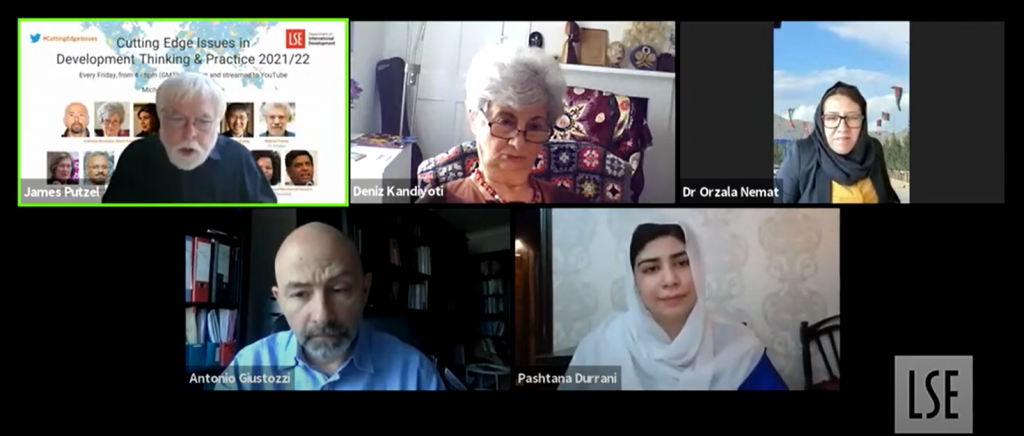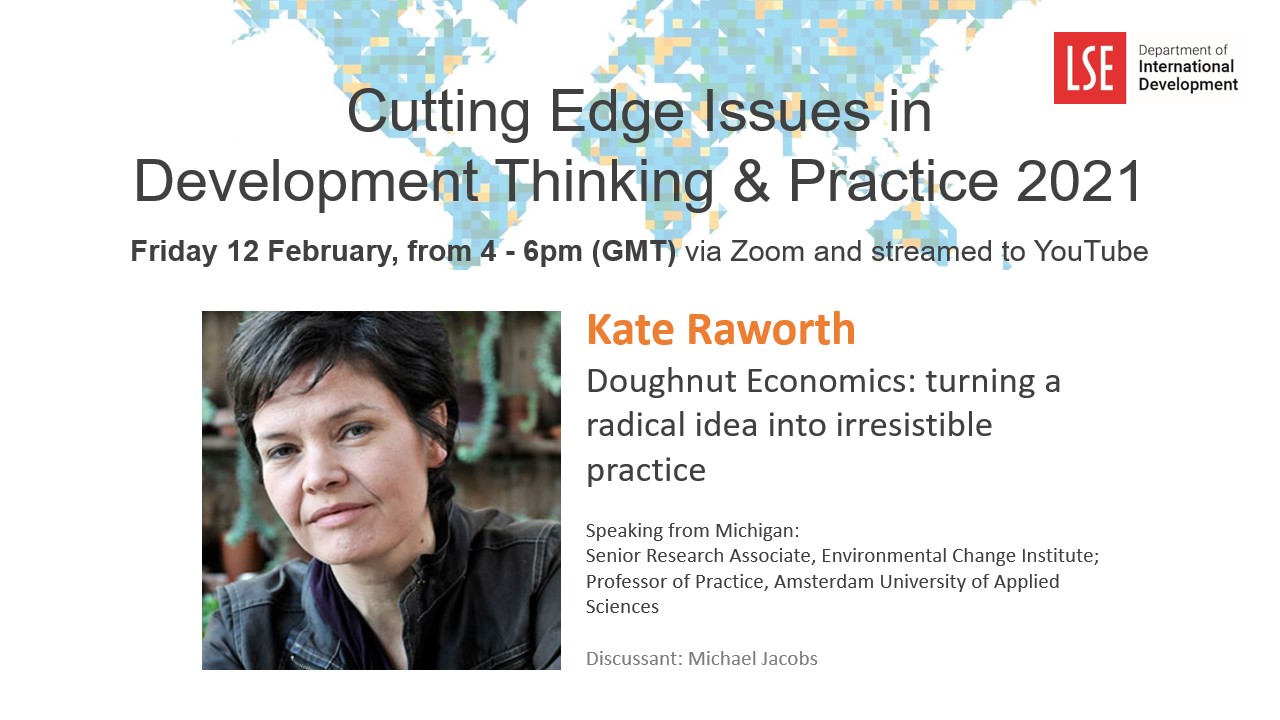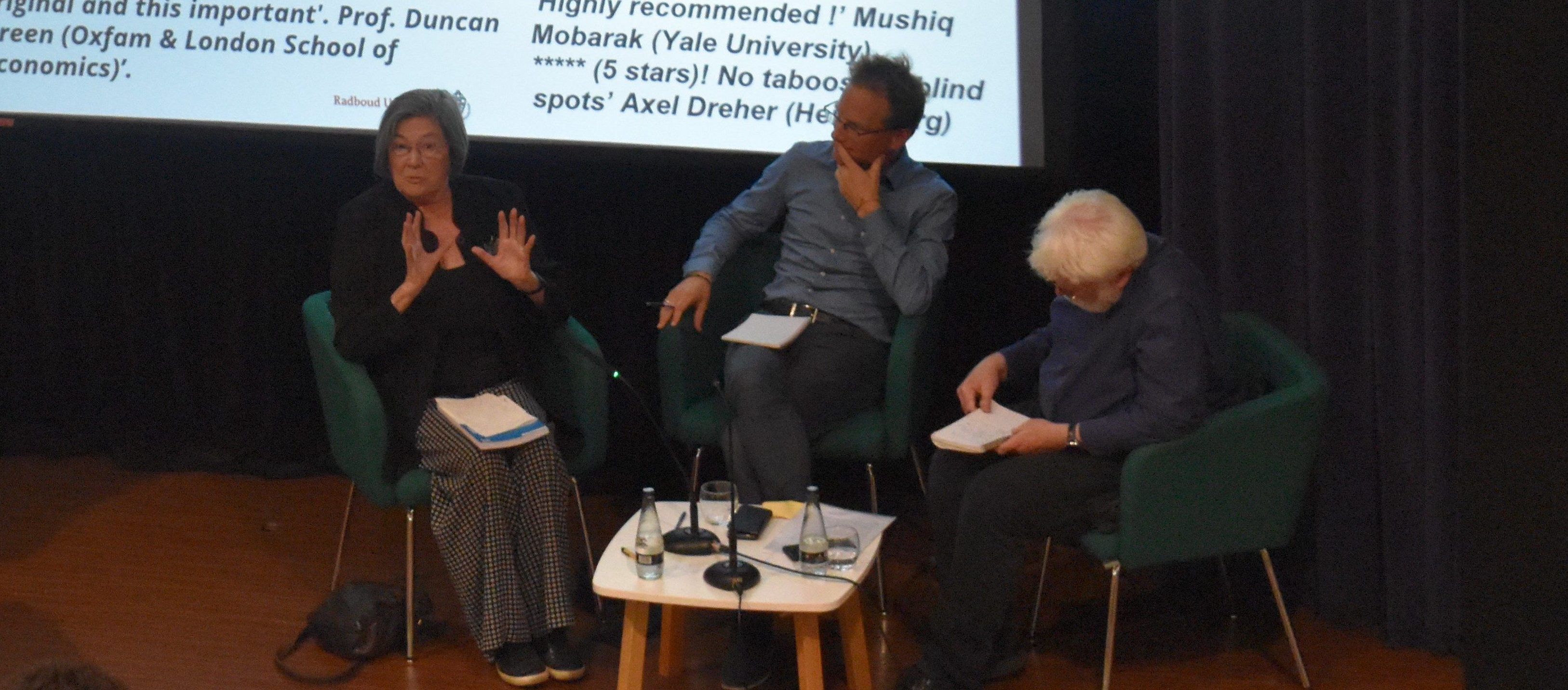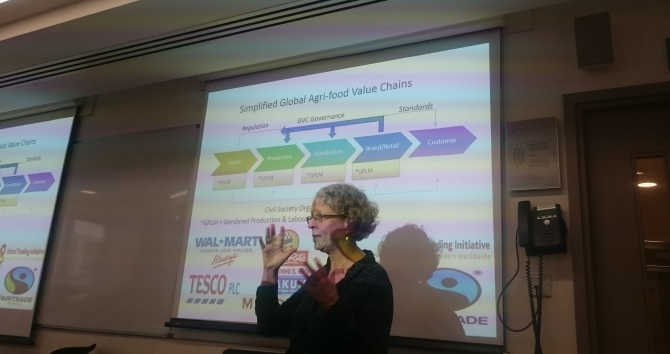On Friday 1 October, the Cutting Edge Issues in Development Lecture Series for 2021/22 kicked off to a great start with a panel on the ‘The Implosion of the Afghan State: What next for women and the nation?’ The panel consisted of Antonio Giustozzi (KCL), Deniz Kandiyoti, (SOAS), Orzala Nemat, (SOAS) and Pashtana Durrani, (LEARN). Read more about what International Development MSc students Shanyce Morris and Sze Vei Leong took away from the lecture below.
You can watch the guest lecture back on YouTube.

The inaugural lecture of this series for the academic year provided new insights into the current situation in Afghanistan. This topic has been heavily discussed in the media since mid-August when the Taliban took over Kabul. This panel discussion provided unique insights by highlighting both structural and individual factors as important in understanding what occurred in Afghanistan and what that means for the future of the country.
The lecture began by addressing the question of “What happened in Afghanistan” and provided an overview of the institutional failures that contributed to the takeover by the Taliban. The panelists described how the collapse of the post-intervention Afghan government was an inevitability due to internal corruption and dependency on donors and the international community since 2001.
Dependency on foreign aid and an over-centralization of power amongst government elites led to spending decisions that alienated civilian populations. This was highlighted by Pashtana Durrani as she discussed witnessing government failure to provide basic services in her own rural community and the effect this had on reducing central government support.
Dr. Deniz Kandiyoti further illustrated this by providing the statistic that only 2% of US spending in Afghanistan reached Afghan people in the form of basic infrastructure and poverty reduction services. Most of this funding went on counterinsurgency, causing, as Pashtana Durrani described, some Afghans in rural populations to support and join the Taliban as the “lesser of two evils”.
The combination of the Taliban having some local support as well as external regional funding and endemic weaknesses in the central government led to the current situation in Afghanistan.
And with the Taliban in power, there is an uncertain outlook for the future of the country. The Taliban has internal divisions that will pose difficulty for making policy decisions and lacks both international funding and recognition. This makes it difficult to predict how the Taliban will govern in the future and if they will choose a different path from when they were previously governing Afghanistan.
However, the lecture did not end by painting a bleak future for the nation and instead consistently highlighted the power of individuals in building a better Afghanistan, on their terms. The panelists were able to affirm and highlight the agency of Afghan people and specifically Afghan women in a way that I had never heard presented in discussions about the country before.
Dr. Orzala Nemat pointed out early in the lecture that discussions of state collapse in Afghanistan were misleading as the state and its citizens are still there. She reminded the audience of the passionate individuals working in state institutions in Afghanistan who have dealt with changing regimes but who have a genuine commitment to see a better nation in the future.
Pashtana Durrani, speaking from the grassroots level, outlined several things she as an Afghan woman believes need to be done to make her country better. One of the primary aspects she focused on was women and girls’ empowerment to see a better future. She discussed the need to educate and train Afghan women and girls and challenged existing narratives and perspectives on Afghan women. Using stories from her own family, she highlighted the agency Afghan women have had in different periods of time and the individuality of their experiences.
Dr. Deniz Kandiyoti reiterated this when she described how Afghan women have been fighting for women’s rights since before the US invasion and they will continue to do so, regardless of the leadership of the country. These women and other women living in Muslim majority countries have agency and choice, and their lived experiences cannot be confined to limited generalizations.
As someone interested in gender and security this was particularly striking to me. When studying gender in conflict, something I’ve found continually frustrating is narratives painting women, particularly in the Global South, as passive victims of a system beyond their control. Listening to this lecture, with three female speakers discussing Afghan women in a way that focused on them as empowered agents and individuals in charge of their own lives, decisions and futures, was incredibly moving. It reminded me how important it is not to forget the individual and their agency in analyzing complex conflicts like Afghanistan.
Shanyce Morris
_______________
This panel gave some fascinating insights into the causes and effects of the current events in Afghanistan. The two main points I want to highlight from the lecture are:
- The perceptions of women in Afghanistan
- The gap between the needs and wants of the state and society
One of the main focuses in this panel was how the rise of the Taliban will impact women in Afghanistan. During the 1996-2001 rule of the Taliban, the organisation gained notoriety for its violence and treatment towards women. The enforcement of the purdah sought to physically segregate genders and called for women to be covered. Pashtana Durrani gave a very humanistic insight into the loss of human life and warfare in the region, giving a compelling account of how the collapse of the state has harmed women both economically and socially. Due to years of continuous warfare, women were left as widows and struggled to support their children due to the lack of government support and social services.
On a larger scale, Western perceptions of gender equality, values and norms have materialised in donor driven gender activism. It is important that we do not impose our perceptions of what gender equality is on the people living through these experiences, but instead highlight their agency and free will so that we do not reduce these people to helpless victims. Dr Deniz Kandiyoti asserted this, stating that gender from a non-Western lens is not very well understood, which can be utilised as a form of imperialism. Gender in the context of Afghanistan shows an explicit conflict between the West and Islamic fundamentalism. This has also been used as a motive to invade Afghanistan, although, historically, women’s movements have taken place before US intervention. A quote by Iris Young surmises “…that feminist focus on women under the Taliban constructed these women as exoticized others and paradigmatic victims in need of salvation by Western feminists”. Dr Kandiyoti also provided a short anecdote of her time doing fieldwork in the region, where a family married their child to a man. This could be perceived as an outcome of gender inequality, but the striking reality was that this was a method of survival by the parents to protect their young daughter from the Taliban.
Another key point to highlight from the lecture is the gap between what the state demands and what society wants when it comes to women’s rights. Pashtana Durrani highlighted the experience of those living in rural regions, and how they felt alienated as a result. The election rigging in 2019 resulted in the underrepresentation of those living in rural regions. Additionally, they felt ignored by the government, and less than 2% of US spending on Afghanistan went on basic infrastructure and services . The Afghan government placed the wants of international actors in Afghanistan before the needs of the citizens they governed. Hence, it is also integral to consider the role the ruling elite played in their interactions with international actors, as well as how they governed. One looming example of this is how the influence of China will develop in the region, and whether this will be purely economic. Another case to consider is Iran, which has provided support to the Taliban and is a major trading partner in the region. Finally, this will also impact the Afghanistan-Pakistan relationship, the uncertainty the populace faces living on these contested borders, as well as how this affects regional stability.
Sze Vei Leong
_______________
The next guest lecture will be with Ha-Joon Chang on Friday 8 October 2021, who will be joining us from Cambridge to talk about ‘The Political Economy of Parasite (the movie)’. LSE Students, Staff and Alumni can register here. External audiences can join the lecture via YouTube.
The views expressed in this post are those of the author and in no way reflect those of the International Development LSE blog or the London School of Economics and Political Science.





